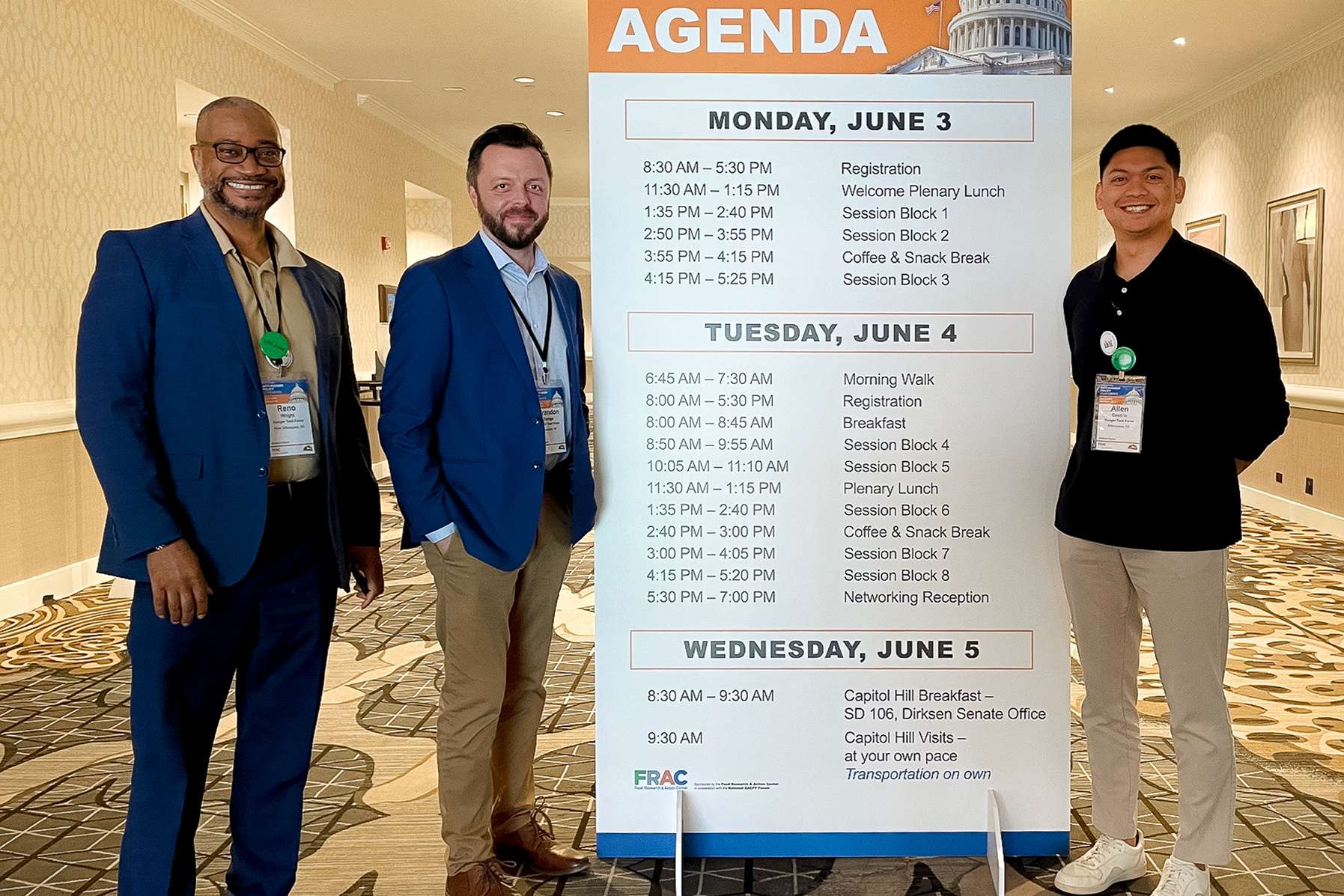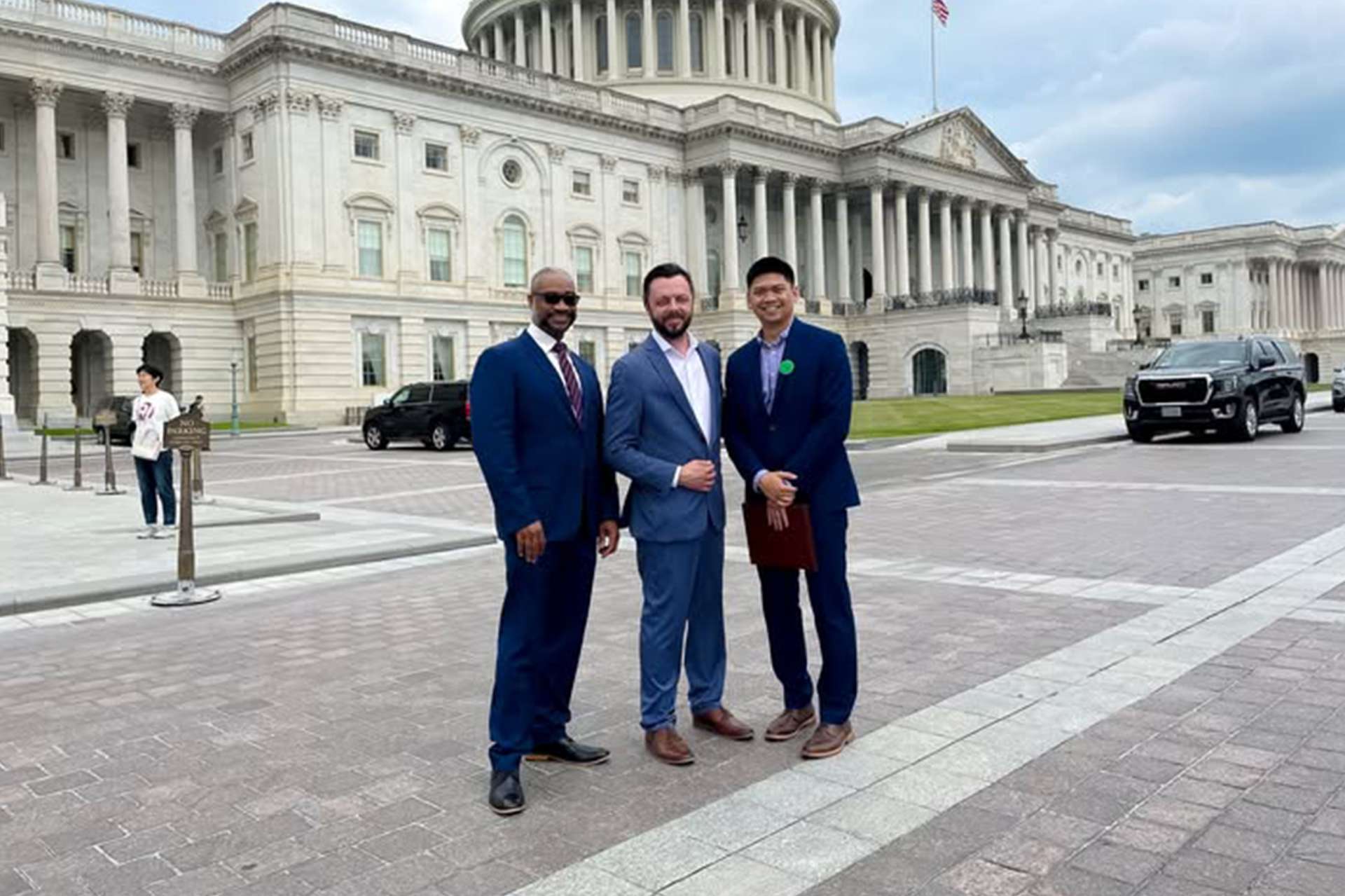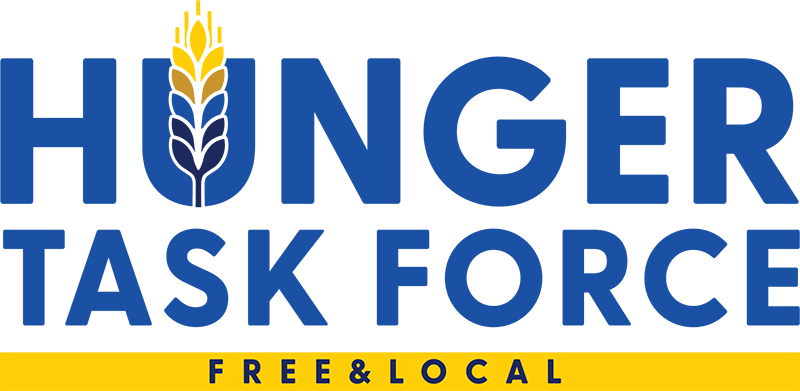A Look Back on Our Advocacy Director’s First Year at Hunger Task Force
In December of 2023, Reno Wright stepped into the role of Advocacy Director with a strong background in human services. A year later, he reflects on five things that stood out to him as he’s worked to help feed people today and end future hunger.

I am amazed by the number of services available to help feed people who are food insecure in Wisconsin and across the country. At the same time, there are limits to and challenges with some programs that unfortunately result in the exclusion of individuals and families. Hunger Task Force employs a team dedicated to serving as a resource for families and individuals to help seniors and families navigate barriers to accessing federal nutrition programs. I have spent a significant amount of time learning about many of the federal nutrition programs Hunger Task Force supports, including the Supplemental Nutrition Assistance Program, Summer Food Service Program, Summer EBT, School Breakfast Program, National School Lunch Program, Child and Adult Care Food Program, Women, Infants and Children, The Emergency Food Assistance Program, Commodity Supplemental Food Program and the Senior Farmer’s Market Nutrition Program.
I have been deeply moved through many opportunities to both work within the programs at Hunger Task Force and to personally meet individuals and families in our community who benefit from these programs. This has included participation at Summer Meals sites, building and distributing Stockboxes, visiting our FoodShare Outreach centers, working on our 208-acre farm and providing vouchers to low-income seniors to purchase fruits and vegetables at farmer’s markets. While advocacy work is vital, it has been equally important for me to serve and to work first-hand within many of the program areas. Seeing the expressions on people’s faces and experiencing their gratitude has been tremendously humbling and energizing as well as a pertinent reminder of why advocacy is so necessary.
I participated in an extremely beneficial course that taught me about the importance of policy, systems and environmental change as it pertains to healthy food options. It reinforced the work we do in the Advocacy Department at Hunger Task Force to prioritize policies that feed hungry people, to help organizations and schools implement systems that promote healthy food choices and to work to create changes throughout the community through advertising and signage that exposes people to healthy food options. Not only do people need equitable access to food, but we strive to promote access to healthy options through our school and community education programming as well as within our pantry and partner network throughout the state of Wisconsin.
Not only have I had to educate myself about federal nutrition programs, but I have also had to immerse myself in learning about nutrition policies and remain abreast of news regarding legislation that potentially affects these programs at both the federal and local levels. Bills are constantly introduced that could have profound impacts on the lives and the health of millions of people throughout our nation as well as thousands of Wisconsinites. This has also required me to increase my knowledge of the legislative processes that result in the passage of laws affecting hungry people. It has taken me back to my political science courses from many years ago and forced me to engage more actively in the process including becoming a registered lobbyist in Wisconsin and traveling to D.C. to participate in a lobby day to speak with elected officials about nutrition policy and our agency’s priorities.
Advocating for equitable policies in a challenging political climate, both at a state and federal level, is not for the faint of heart. Finally, it would be disingenuous to say this work has been easy. Advocating for equitable policies in a challenging political climate, both at a state and federal level is not for the faint of heart. For example, at the federal level, like many advocates throughout the nation, we have called on legislators to strengthen and protect SNAP, which is a first line of defense against hunger, as well as to fully fund all other nutrition programs in both the Farm Bill and the annual appropriations funding package. Recently, Congress announced that a deal had been reached for a one-year Farm Bill, and a continuing resolution for several programs, including nutrition programs through March 14, 2025. Excluded from the final legislation was federal funding to protect victims of theft by those who prey on vulnerable SNAP recipients by stealing their benefits from their EBT/Quest cards. This is also known as skimming. This means that people who are already food insecure have no recourse to obtain reimbursements to replace food if their benefits are stolen.
While efforts have been made at the state level to provide a more secure benefit card like the protection provided through chip-enhanced bank cards, these safeguards are not currently in place. Therefore, stolen benefits that cannot be replaced can potentially result in children, families and seniors in our community experiencing food shortages which is unconscionable. Decisions to exclude safety provisions at the federal level for victims of skimming are disheartening, especially considering the amount of work that went into encouraging lawmakers to protect our vulnerable citizens. These funds could also have been used to stimulate the economy with financial benefits to business owners and farmers who produce and provide food for hungry people.
Similarly, at the state level, there were several bills introduced during the last legislative session that could have provided much-needed support to low-income individuals and families that did not come to fruition. While unfortunate, this simply means that there is still much work to be done in the fight to ensure that there are policies in place to support children, families and seniors in our communities. This past year has been both challenging and rewarding, but I strongly believe in the mission at Hunger Task Force. Yes, we are a food bank, but we are so much more. Hunger Task Force believes that every person has a right to healthy food obtained with dignity. We work to prevent hunger and malnutrition by providing food to people in need today and by promoting social policies to achieve a hunger free community tomorrow. I also firmly embrace the core values of dignity, justice, equity, compassion and stewardship. Hunger Task Force has been doing exceptional work in partnership with donors, volunteers, community-based organizations and government entities for the past 50 years, and I am both proud and humble to be a part of this great team.



